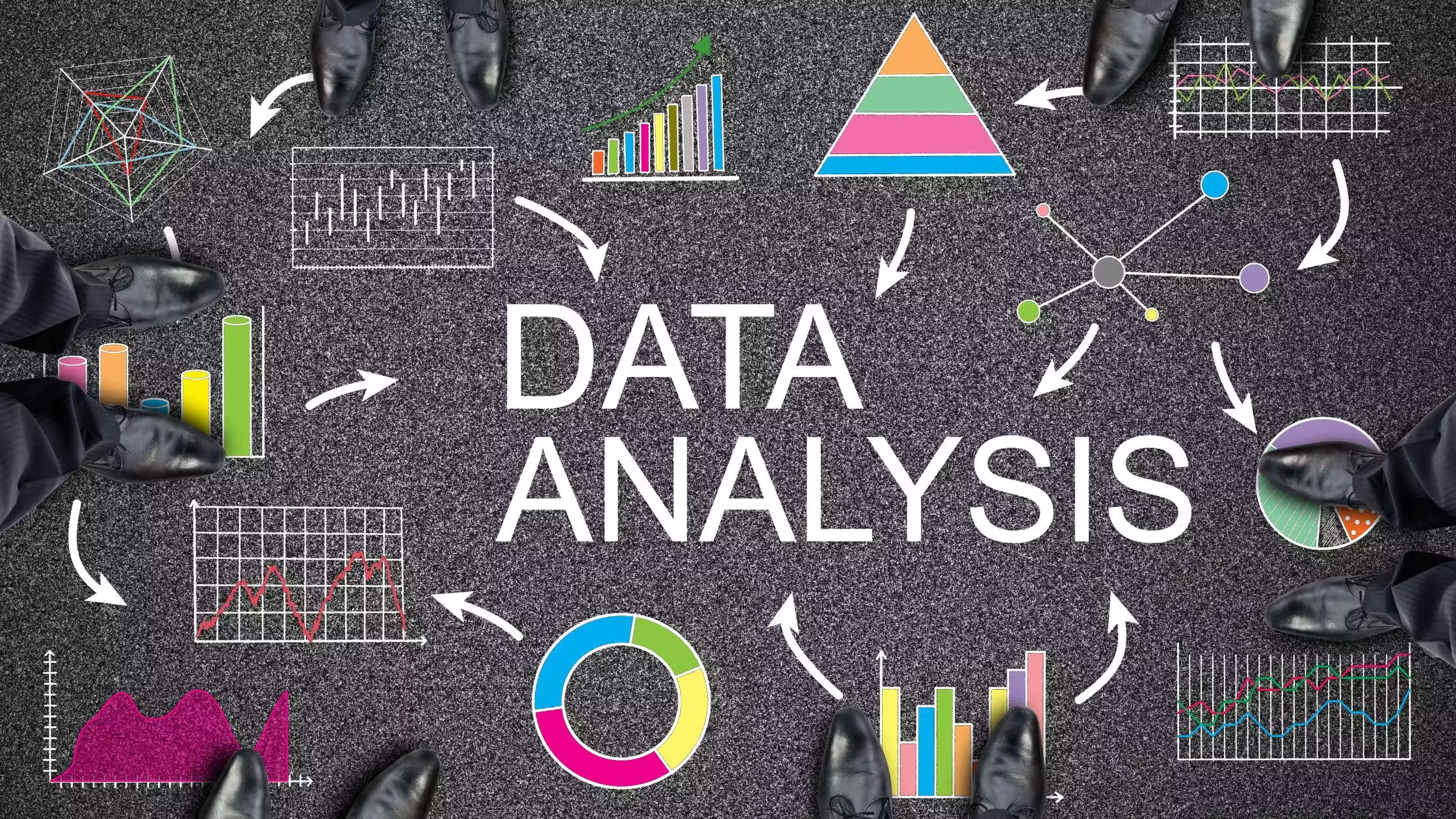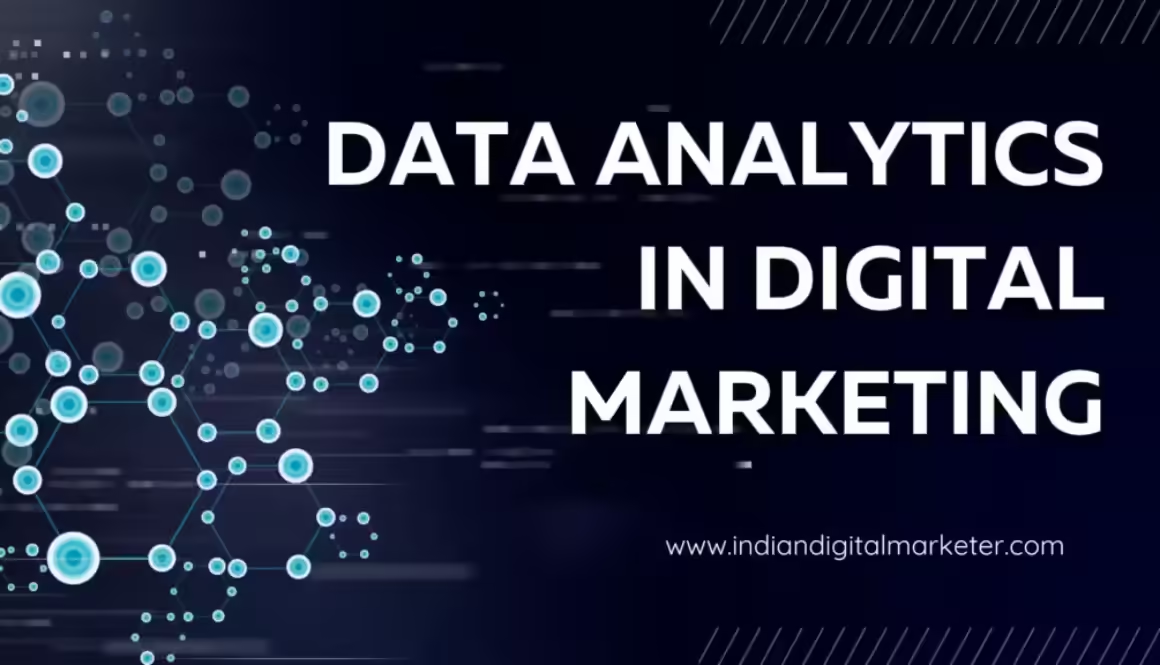The Importance of Data Analytics in Digital Marketing
In the digital age, marketing is no longer simply about pushing out content; it’s about making data-driven decisions that foster strong connections with the audience. Data Analytics has become a cornerstone of digital marketing, offering insights into consumer behavior and guiding strategies that lead to more effective, personalized campaigns. Understanding the importance of Data Analytics in digital marketing is essential for businesses aiming to stay competitive and agile in an evolving landscape.
What is Data Analytics in Digital Marketing?

Data Analytics involves gathering, processing, and analyzing data to uncover insights, trends, and patterns that can inform business decisions. In digital marketing, it encompasses the collection and analysis of user behavior across websites, social media, and other digital platforms.
To put it simply, it allows businesses to understand their customers better and make more informed decisions on everything from ad targeting to content strategy. The four primary types of analytics are:
- Descriptive Analytics: Which summarizes what has happened.
- Diagnostic Analytics: Which seeks to explain why something happened.
- Predictive Analytics: Which forecasts what might happen based on past patterns.
- Prescriptive Analytics: Which recommends actions to achieve a desired outcome.
These types of Data Analytics give marketers a clear picture of their audience, enabling data-backed strategies that can increase engagement, conversions, and return on investment (ROI).
Key Benefits of Data Analytics in Digital Marketing
1. Personalization and Customer Targeting
Data Analytics is instrumental in helping brands personalize their marketing efforts. In today’s market, customers expect a personalized experience, and Data Analytics makes it easier to deliver on this expectation. By analyzing various data points such as browsing behavior, purchase history, and demographic information, marketers can segment their audience and tailor content to different customer groups.
For example, if a user frequently visits a website to view a certain product, this data can be used to retarget them with personalized ads, increasing the likelihood of conversion. Data Analytics empowers marketers to reach the right audience with the right message at the right time.
2. Improved Campaign Performance
Through Data Analytics, marketers gain insights into key performance indicators (KPIs) like click-through rates (CTR), conversion rates, and ROI. By monitoring these metrics, they can assess a campaign’s success and make real-time adjustments to improve results. If a social media ad is underperforming, Data Analytics can reveal factors like audience misalignment or content issues that may be affecting engagement.
This agile approach enables marketers to allocate resources to the most effective channels and create high-performing campaigns. With Data Analytics, decisions are based on data rather than assumptions, leading to a more efficient use of marketing budgets.
3. Enhanced Customer Engagement
 For digital marketing to be effective, engaging the audience is crucial. Data Analytics allows marketers to understand how their audience interacts with various types of content—whether blog posts, videos, or social media updates. By analyzing engagement metrics, brands can refine their strategies to create content that resonates with their audience, encouraging deeper engagement and fostering customer loyalty.
For digital marketing to be effective, engaging the audience is crucial. Data Analytics allows marketers to understand how their audience interacts with various types of content—whether blog posts, videos, or social media updates. By analyzing engagement metrics, brands can refine their strategies to create content that resonates with their audience, encouraging deeper engagement and fostering customer loyalty.This data-driven approach not only builds stronger connections with customers but also increases the likelihood of repeat business, as brands become more aligned with customer preferences.
4. Cost Efficiency
Marketing budgets are often limited, making it essential to spend resources on strategies that yield the highest returns. Data Analytics helps businesses identify which channels and campaigns are generating the best results, enabling them to allocate budgets more efficiently. For example, if analytics show that paid search ads drive higher conversions than display ads, marketers can shift more of their budget toward paid search to maximize ROI.
By avoiding spending on ineffective channels, businesses can reduce waste and ensure that their marketing budget is used in the most impactful way.
Types of Data Used in Digital Marketing Analytics
Digital marketers rely on a variety of data sources to understand and refine their strategies. Key types of data include:
- Demographic Data: Age, gender, location, and other basic characteristics of the audience.
- Behavioral Data: Data on how users interact with websites, including page views, time spent on site, and actions taken.
- Conversion Data: Information on whether users complete desired actions, like making a purchase or signing up for a newsletter.
- Social Media Metrics: Engagement data from social media platforms, such as likes, shares, comments, and follower growth.
Analyzing these data points helps marketers make strategic decisions and build a holistic view of their audience, ultimately leading to more effective marketing efforts.
Popular Tools for Data Analytics in Digital Marketing
A variety of tools are available to help marketers harness the power of Data Analytics:
- Google Analytics: A comprehensive tool for tracking website traffic and user behavior.
- HubSpot: Provides insights into email marketing, lead tracking, and customer engagement.
- SEMrush: Useful for tracking SEO metrics and competitive analysis.
- Hootsuite: A social media management platform with insights into engagement and performance across social channels.
These tools simplify the collection and analysis of data, turning complex data sets into actionable insights.
Challenges in Data Analytics
While Data Analytics offers many benefits, it comes with challenges. One major hurdle is data overload. Marketers may face “analysis paralysis” when they have too much data and struggle to derive clear insights. Privacy concerns are also growing, with regulations such as GDPR and CCPA requiring companies to handle customer data responsibly.
Additionally, integrating data from different sources can be complex, as it often requires advanced tools or technical expertise. Marketers need to ensure they are working with accurate, high-quality data to make reliable decisions.
Future Trends in Data Analytics

Automation is also on the rise, with tools that can automatically adjust ad spend, content distribution, and other marketing efforts based on real-time data insights. These trends will make Data Analytics even more central to digital marketing success.
Conclusion
The role of Data Analytics in digital marketing is transformative. It empowers marketers to make informed decisions, optimize their strategies, and personalize customer experiences. As technology advances, the significance of Data Analytics will only grow, allowing businesses to better understand their audience and stay competitive in a constantly changing digital landscape.
By leveraging Data Analytics, marketers can improve campaign effectiveness, engage their audience more deeply, and maximize their marketing budget. For businesses today, embracing Data Analytics isn’t just beneficial—it’s essential for long-term success.
